- 0086-571-85302990
- sales@greenskybio.com
Use natural grape seed extract? Make sure you source from sustainable suppliers!
2024-12-17

1. Introduction
Natural Grape Seed Extract has gained significant popularity in various industries, including the food, cosmetics, and pharmaceutical sectors. It is rich in antioxidants, such as proanthocyanidins, which are known for their potential health benefits, including anti - inflammatory and anti - aging properties. However, as consumers become more conscious about the origin and production methods of the products they use, it is crucial to consider the source of Grape Seed Extract. Sourcing from sustainable suppliers is not just a trendy concept but an essential factor that can influence the overall quality, safety, and environmental impact of the final product.
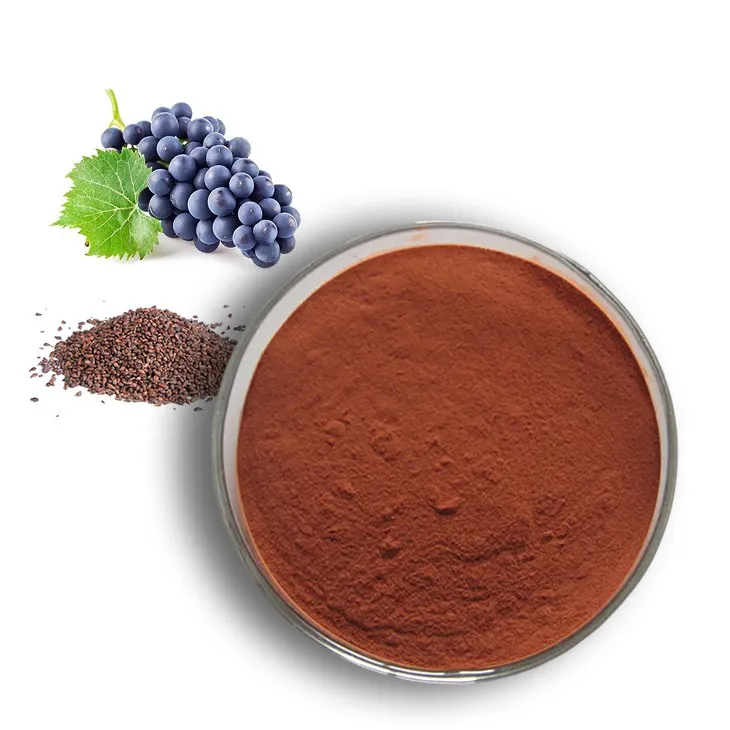
2. The Significance of Sustainable Sourcing
2.1. Environmental Impact
When it comes to Grape Seed Extract, sustainable sourcing starts with the cultivation of grapes. Suppliers who follow sustainable farming practices are more likely to use environmentally - friendly techniques. For example, they may practice organic farming, which reduces the use of synthetic pesticides and fertilizers. These chemicals can have a negative impact on soil quality, water sources, and surrounding ecosystems. By choosing products sourced from sustainable suppliers, consumers are indirectly supporting the protection of the environment. Organic farming also promotes biodiversity, as it allows for a more natural balance of flora and fauna in the vineyard area.
2.2. Efficacy and Quality
The quality of grape seed extract can be significantly affected by the sourcing. Grapes grown in sustainable conditions are often of better quality. For instance, proper soil management in sustainable vineyards can lead to grapes with a more optimal nutrient profile. This, in turn, can result in a higher concentration of beneficial compounds in the grape seed extract. Sustainable suppliers are also more likely to have strict quality control measures in place during the extraction process. This ensures that the final product is pure, potent, and free from contaminants, which is crucial for its efficacy in various applications, whether it is for promoting skin health in cosmetics or providing antioxidant support in dietary supplements.
2.3. Social Responsibility
Another important aspect of sustainable sourcing is social responsibility. Sustainable suppliers often uphold fair labor practices. They ensure that the workers involved in grape cultivation, harvesting, and extraction are paid fair wages and work in safe conditions. This not only benefits the workers directly but also has a positive impact on the local communities where the grapes are sourced. By choosing products from such suppliers, consumers are contributing to the well - being of these communities. Additionally, sustainable suppliers may also be involved in community development projects, such as providing education or healthcare facilities in the local area.
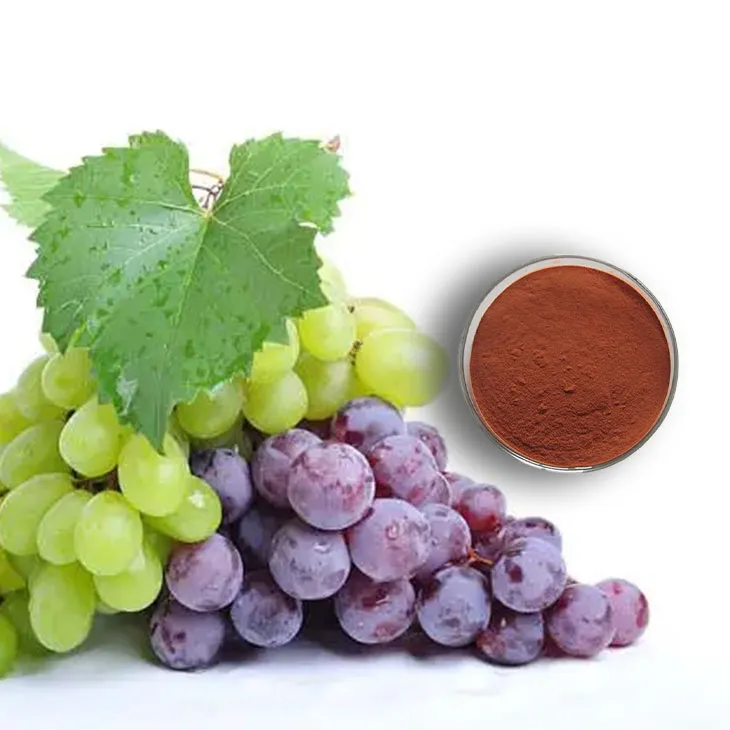
3. Criteria for Evaluating Sustainable Suppliers
3.1. Organic Farming Certification
One of the key criteria for evaluating a sustainable supplier of grape seed extract is the presence of organic farming certification. This certification ensures that the grapes are grown without the use of synthetic pesticides, fertilizers, and genetically modified organisms (GMOs). There are several well - recognized organic certification bodies around the world, such as the USDA Organic in the United States and the EU Organic in the European Union. Suppliers with these certifications are required to follow strict standards throughout the farming process, from soil preparation to grape harvesting. This provides consumers with the assurance that the grape seed extract is sourced from grapes grown in an environmentally - friendly and sustainable manner.
3.2. Environmental Management Systems
Suppliers should also have effective environmental management systems in place. This includes measures such as water conservation, waste management, and energy efficiency. For example, a sustainable grapevineyard may have a system for collecting and reusing rainwater for irrigation, reducing the reliance on freshwater sources. In terms of waste management, they may recycle grape waste, such as skins and stems, into useful by - products, like compost or biofuel. Energy - efficient practices can also be implemented, such as using solar panels to power certain operations in the vineyard or extraction facility. These environmental management systems not only reduce the environmental impact of the supplier but also contribute to the overall sustainability of the grape seed extract production process.
3.3. Social and Labor Standards
Evaluating the social and labor standards of a supplier is equally important. This involves looking at factors such as fair wages, safe working conditions, and the absence of child labor. Suppliers should be able to provide evidence of their compliance with international labor standards, such as those set by the International Labour Organization (ILO). For example, they should have policies in place to ensure that workers are protected from hazardous chemicals during the grape cultivation and extraction processes. Additionally, they should offer training and development opportunities for their employees to enhance their skills and career prospects. A sustainable supplier also respects the rights of local communities, such as obtaining proper land - use permissions and respecting cultural heritage sites in the area where the grapes are grown.
3.4. Traceability
Traceability is a crucial factor in evaluating sustainable suppliers. It allows consumers to know the origin of the grape seed extract, from which vineyard the grapes were sourced to how the extract was processed. A good sustainable supplier should be able to provide detailed information about the supply chain. This can be achieved through the use of technologies such as blockchain or traditional record - keeping systems. Traceability not only helps consumers make informed decisions but also enables suppliers to quickly identify and address any issues in the supply chain, such as quality control problems or potential environmental impacts at a specific production stage.
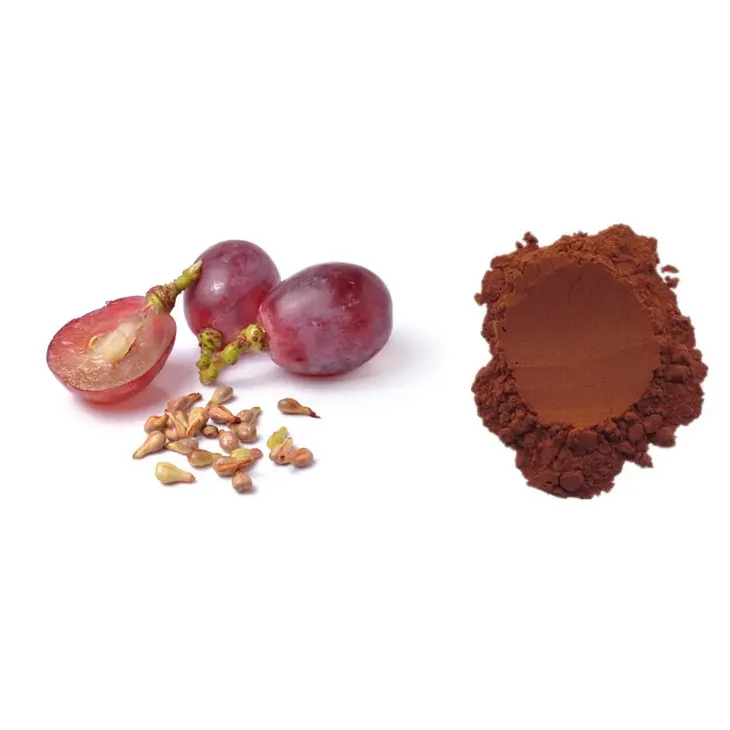
4. Challenges in Sourcing from Sustainable Suppliers
4.1. Cost
One of the main challenges in sourcing grape seed extract from sustainable suppliers is the cost. Sustainable farming and production methods often require more investment. For example, organic farming may involve higher costs for natural pest control methods and the use of organic fertilizers. Additionally, implementing environmental management systems and ensuring fair labor practices also add to the overall cost of production. As a result, products sourced from sustainable suppliers may be more expensive compared to those from non - sustainable sources. This can be a deterrent for some consumers or manufacturers who are price - sensitive. However, it is important to consider the long - term benefits, such as environmental protection and social well - being, which can outweigh the initial cost difference.
4.2. Limited Availability
Another challenge is the limited availability of grape seed extract from sustainable suppliers. Currently, the demand for sustainable products is growing faster than the supply. There are still relatively few vineyards and suppliers that fully adhere to sustainable practices. This can make it difficult for manufacturers to source a sufficient quantity of high - quality grape seed extract from sustainable sources. In some cases, they may have to wait longer for deliveries or may need to source from multiple suppliers to meet their production needs. This can also lead to issues with consistency in the quality of the grape seed extract, as different suppliers may have slightly different production methods and quality control standards.
4.3. Verification and Certification Complexity
Verifying the sustainability claims of suppliers can be a complex process. There are numerous certification schemes and standards, and it can be difficult for buyers to determine which ones are truly reliable. Some suppliers may claim to be sustainable but may not fully meet all the requirements of a recognized certification. Additionally, the process of obtaining and maintaining certifications can be time - consuming and costly for suppliers. This can lead to some suppliers cutting corners or making false claims. As a consumer or a manufacturer, it is essential to do thorough research and due diligence to ensure that the supplier is truly sustainable.
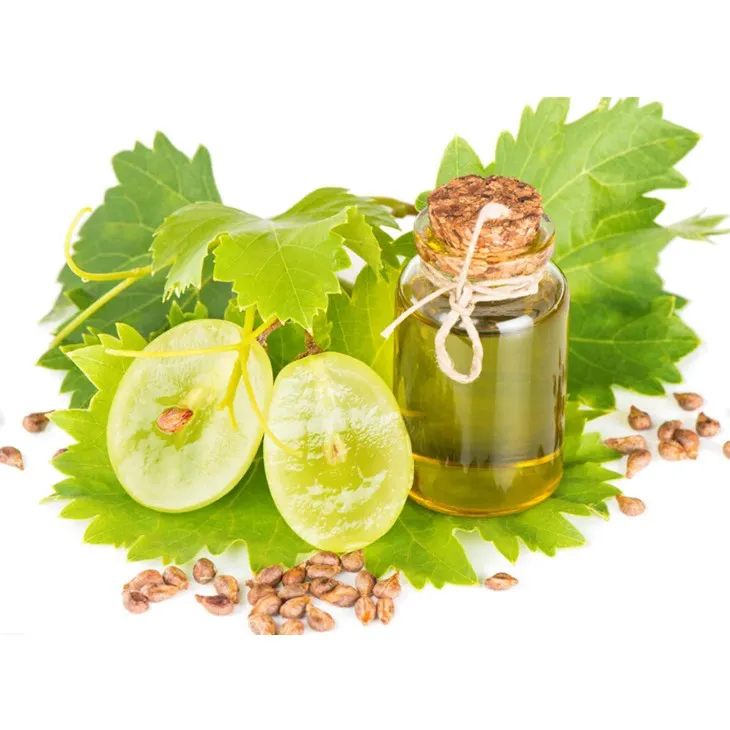
5. Strategies for Ensuring Sustainable Sourcing
5.1. Collaboration between Industry Players
One strategy for ensuring sustainable sourcing of grape seed extract is through collaboration between industry players. This includes manufacturers, suppliers, and even consumers. Manufacturers can work together with suppliers to set common sustainability goals and standards. For example, they can jointly develop guidelines for environmental management and social responsibility in the grape seed extract supply chain. Consumers can also play a role by demanding sustainable products and supporting companies that are committed to sustainable sourcing. By working together, industry players can create a more sustainable market for grape seed extract.
5.2. Investment in Sustainable Production
Investing in sustainable production is another important strategy. This can involve financial support for vineyards to transition to organic farming or to improve their environmental management systems. Governments, private investors, or industry associations can provide grants, loans, or incentives for sustainable production. For example, a government may offer tax breaks for vineyards that implement water - conservation measures. By investing in sustainable production, the supply of grape seed extract from sustainable sources can be increased, which can also help to reduce the cost in the long run as economies of scale are achieved.
5.3. Education and Awareness
Education and awareness are crucial for ensuring sustainable sourcing. Consumers need to be educated about the importance of sustainable products and how to identify them. This can be done through marketing campaigns, product labels, and educational materials. For example, a product label can clearly indicate whether the grape seed extract is sourced from sustainable suppliers and what the sustainability criteria are. Suppliers and manufacturers can also benefit from education on the latest sustainable practices and technologies. By increasing education and awareness, the demand for sustainable grape seed extract can be further driven, which in turn encourages more suppliers to adopt sustainable practices.
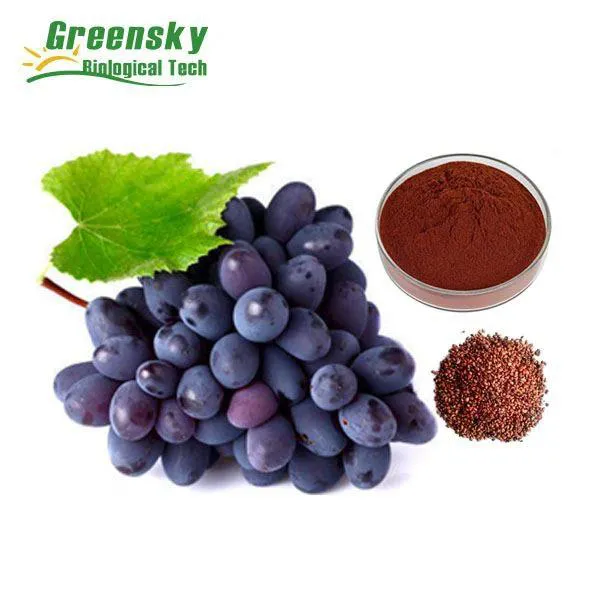
6. Conclusion
In conclusion, when using Natural grape seed extract, sourcing from sustainable suppliers is of utmost importance. It has far - reaching implications for the environment, the quality and efficacy of the product, and social responsibility. While there are challenges in sourcing from sustainable suppliers, such as cost, limited availability, and verification complexity, there are also strategies that can be implemented to overcome these challenges. Through collaboration, investment, and education, a more sustainable future for the grape seed extract industry can be achieved. As consumers become more aware of the significance of sustainable sourcing, they can make more informed choices, which will ultimately drive the market towards greater sustainability.
FAQ:
What are the benefits of using Natural grape seed extract?
Natural grape seed extract is rich in antioxidants, such as proanthocyanidins. These antioxidants can help fight against free radicals in the body, which may contribute to reducing the risk of chronic diseases, improving skin health, and enhancing cardiovascular function.
Why is it important to source grape seed extract from sustainable suppliers?
Sourcing from sustainable suppliers ensures that the production process is environmentally friendly. Sustainable suppliers often follow organic farming practices, which reduce the use of pesticides and chemical fertilizers. Moreover, they also take social responsibility into account, such as providing fair wages and good working conditions for farmers. This not only benefits the environment and the local community but also ensures the quality and safety of the grape seed extract.
What are the criteria for evaluating sustainable suppliers of grape seed extract?
One of the main criteria is organic farming practices. Suppliers should be able to prove that they grow grapes without the use of synthetic pesticides and fertilizers. Social responsibility is also important, including fair treatment of workers, compliance with labor laws, and support for the local community. Additionally, sustainable suppliers should have proper waste management and energy - efficient production processes.
How does sustainable sourcing of grape seed extract contribute to a healthier future?
By choosing sustainable suppliers, we ensure that the grape seed extract is produced in an environmentally friendly and socially responsible way. This means that the product is less likely to be contaminated with harmful chemicals, which is better for our health. Also, sustainable sourcing helps protect the environment, which in turn benefits future generations' access to clean air, water, and healthy food.
Can sustainable - sourced grape seed extract be more effective?
Yes, it can be. Sustainable farming practices often lead to healthier grape plants. When grapes are grown organically, they may contain higher levels of beneficial compounds like antioxidants. Since grape seed extract is derived from these grapes, it may have a higher concentration of active ingredients, potentially making it more effective.
Related literature
- The Impact of Sustainable Sourcing on the Quality of Grape Seed Extract"
- "Sustainable Suppliers and the Future of Natural Ingredient Markets: The Case of Grape Seed Extract"
- "Organic Farming and the Efficacy of Grape Seed Extract"
- ▶ Hesperidin
- ▶ Citrus Bioflavonoids
- ▶ Plant Extract
- ▶ lycopene
- ▶ Diosmin
- ▶ Grape seed extract
- ▶ Sea buckthorn Juice Powder
- ▶ Fruit Juice Powder
- ▶ Hops Extract
- ▶ Artichoke Extract
- ▶ Mushroom extract
- ▶ Astaxanthin
- ▶ Green Tea Extract
- ▶ Curcumin
- ▶ Horse Chestnut Extract
- ▶ Other Product
- ▶ Boswellia Serrata Extract
- ▶ Resveratrol
- ▶ Marigold Extract
- ▶ Grape Leaf Extract
- ▶ New Product
- ▶ Aminolevulinic acid
- ▶ Cranberry Extract
- ▶ Red Yeast Rice
- ▶ Red Wine Extract
-
Europen Bilberry Extract
2024-12-17
-
Diosmin
2024-12-17
-
Hericium erinaceus extract powder
2024-12-17
-
Sugarcane Extract
2024-12-17
-
Coconut Water Powder
2024-12-17
-
Pueraria Lobata Extract
2024-12-17
-
Acai Berry Extract
2024-12-17
-
Lemon Extract
2024-12-17
-
Saponin Extract
2024-12-17
-
Moringa powder
2024-12-17





















